Boris Johnson Is Pushing Britain Into the Abyss
The Nation's Dan Guttenplan examines the prime minister's plan to prorogue parliament and the possible consequences of a no-deal Brexit.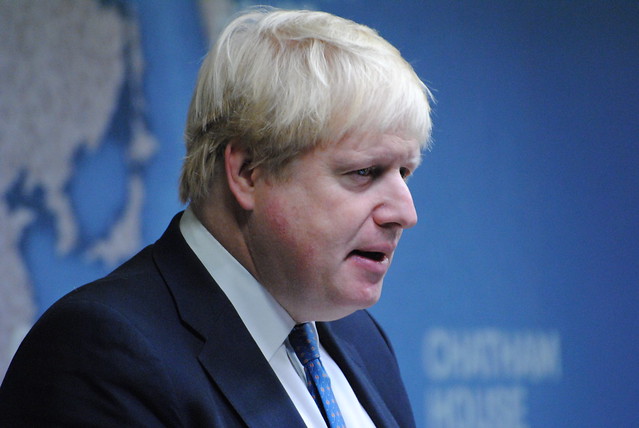 British Prime Minister Boris Johnson. (Chatham House / Flickr)
British Prime Minister Boris Johnson. (Chatham House / Flickr)
What follows is a conversation between The Nation’s Don Guttenplan and Marc Steiner of The Real News Network. Read a transcript of their conversation below or watch the video at the bottom of the post.
JEREMY CORBYN, LABOUR PARTY LEADER: Suspending Parliament is not acceptable. It’s not on. What the Prime Minister is doing is this sort of smash and grab on our democracy.
REPORTER: Your critics will say, this is an insult to democracy and denying the MPs the time they need to debate and possibly vote on Brexit.
BRITISH PRIME MINISTER BORIS JOHNSON: No. Well, that’s – that is completely untrue. If you look at what we’re doing, we’re bringing forward a new legislative program.
PROTESTORS: Save our democracy. [inaudible]. If you shut down the Parliament, we shut down the streets. If you shut down the Parliament, we shut down the streets.
MARC STEINER: Welcome to The Real News Network. I’m Marc Steiner. Good to have you with us.
Well, as you just heard, right-wing mania seems to be infecting the minds of political leaders all across the globe, and I’m not talking at this moment about anyone who resides in 1600 Pennsylvania Avenue. This time I’m talking about the man who resides at 10 Downing Street, Prime Minister Boris Johnson, who asked Queen Elizabeth II to suspend Parliament beginning next week through October the 14th, effectively shutting down any opposition to Johnson’s move for Brexit— deal or no deal. It has caused outrage with opposition members and members of his own Conservative Party. How can they just shut down Parliament? What does that mean politically? Is it legal? Where does it come from? And what could be the result?
Well, we’re joined now by Don Guttenplan. Don Guttenplan is, who for years was The Nation correspondent in London, and is now Editor of that magazine. Don, welcome. Good to have you with us.
DON GUTTENPLAN: Great to be here, Marc. Great to be here. And yes, as you’ve said, I lived in London until June, for 25 years.
MARC STEINER: 25 years! I said a little while. That’s a long while.
DON GUTTENPLAN: That was a long while. I saw this cliff edge approaching, but I didn’t believe we’d ever actually get there, and we’re not there yet. [crosstalk]
MARC STEINER: Talk about what you mean. What do you think politically is going on? He wants Brexit, deal or no deal, pushing this through. He told folks, as you know, we just want to push our agenda through. Talk about what the politics are here.
DON GUTTENPLAN: Okay. There are a couple of things to bear in mind. One is that nothing’s actually happened yet.
MARC STEINER: Right, right.
DON GUTTENPLAN: Johnson sent the queen a letter, and she said okay. And what he’s asked is for her to suspend Parliament starting next week essentially, or at the latest next week.
MARC STEINER: Right.
DON GUTTENPLAN: Next week is next week. And as we all know in politics, a week is an eternity, so a lot can happen before then. But what he wants to do—Well, that’s the surface game. The deeper game, and this is one of the things that is worth bearing in mind about Boris Johnson, is that one of the things you learn in going to Eton, where he was educated, is to treat everything in life as a game. And that has disadvantages in terms of seriousness and purpose, or perhaps your moral bearings. But it does have an advantage in that if you treat everything in life as a game, then you always know what game you’re playing. That’s where Johnson an advantage over, for example, Theresa May, his predecessor as Prime Minister, and maybe even over the Europeans who are watching this with a mixture of horror and perhaps some [inaudible] because the Brexit negotiations have always been a game of chicken.
It’s always been about heading towards the cliff edge, for those of you who remember Rebel Without a Cause, with your foot on the accelerator, but with one hand on the door. And the first person to bail loses, except if the second person to bail ends up going over the cliff. But of course, the way to win in chicken is to convince your opponent that you are willing to go over a cliff. That’s what this letter to the queen is about. It’s about signaling to the Europeans that Johnson has his foot on the accelerator and that if they don’t want this to happen, they’d better come up with something more and better, and conspicuously more and better than the deal that took months for his predecessor, Theresa May, to negotiate.
MARC STEINER: Well, it seems that from what I’ve been reading, that Jeremy Corbyn wanted to introduce into Parliament a no-confidence vote, and that could have something to do with it as well. I mean—
DON GUTTENPLAN: Yeah, there could be an election. That’s the other non-surface game that’s being played here, is the timing of the election. For readers who—For readers, sorry.
MARC STEINER: That’s okay.
DON GUTTENPLAN: I edit a magazine, so I think about readers. But for viewers who want a deeper dive into all of this than we’re going to have time for today, I would look at Stephen Bush who is the New Statesman‘s correspondent, who’s been terrific on Brexit from the beginning. He points out that you have three options for timing an election. You can have an election after Brexit and after a no-deal Brexit when all of the sort of consequences begin to bite. or you can have an election before you’ve delivered Brexit. In which case, the Tory Party risks losing not only the people who don’t want to no-deal Brexit, but the people who do want Brexit and are frustrated that they haven’t delivered it.
So between those alternatives, it may be that the least worst alternative for Johnson is to have an election right after you’ve crashed out, which is probably as soon as Corbyn’s no-confidence vote would have a chance to be considered, but before the consequences have had a chance to bite. So partly, it’s about that too. But the other thing that’s worth noting is what the speaker said. So you said, is this legal?
MARC STEINER: Right.
DON GUTTENPLAN: Well, unlike the United States, which is a constitutional republic, Britain doesn’t have a written constitution. One of the things that we Americans can be glad about this week is that we do have one because this is the kind of mess that happens when you don’t have one. So in the absence of a written constitution specifying what Parliament can and can’t do, parliament is sovereign. It can agree to do anything it wants.
The problem for Johnson is that parliament in its current make up is unlikely to agree to do what he wants, which is to exit the European Union without a deal. So part of this is about his machinations to get around that, but proroguing Parliament, which he’s asked the queen to do, is not – I mean, it has been done before. It’s not something that’s never been done, but it’s a big deal. And to do it when you don’t have a government majority, and when you are trying to avoid a vote that you would probably lose, is a bigger deal.
I mean, there is quite a bit of justification in people who see this and are labeling this as a coup. If this happens, and he is allowed to prorogue Parliament, and then Britain does crash out while Parliament is in recess, or after it’s been abolished – or not abolished, but suspended. That’s appropriate [crosstalk].
MARC STEINER: Suspended, right. Right.
DON GUTTENPLAN: Suspended. That probably could be legitimately described as a coup. It’s certainly a way of getting around all of the parliamentary, not constitutional, but parliamentary checks that are supposed to keep things like this from happening. But speaker John Bercow called this a “constitutional outrage.” His opinion as the speaker doesn’t amount to all that much since he doesn’t have that much power, but the power he does have, which may be really important in the next five days, is the power to control Parliament’s timetable. So in other words, by calling this a constitutional outrage—And remember, Bercow, although he doesn’t get along with Johnson, and indeed a lot of Tories don’t like him, is still titularly a member of the Tory Party.
MARC STEINER: That’s what I thought. Right.
DON GUTTENPLAN: This is not a Corbyn supporter calling it this. It’s a member of the Tory Party calling it this. By saying that, he’s essentially signaling to Brexit’s opponents that if they can get their act together and come up with a constitutional strategy for stopping this suspension, and indeed forbidding a Brexit while Parliament, for example, is suspended, that he will give them time to debate that. He is not opposed to the forces that are trying to stop this.
MARC STEINER: Two quick questions before you have to run and we have to close out here. On the one hand, I mean, because if this does go through, they don’t come back until 14th, he wants to announce the thing by the 17th of October to have this no-deal Brexit. I mean if that happened, that could have really an amazing fallout in terms of economic distress for Britain itself.
DON GUTTENPLAN: Oh, it would be a disaster. I mean, people are talking about running out—People with diabetes may not be able to get insulin. They’re going to have to search every truck of the thousands of trucks that goes through Calais and Dover every day, which means they’re going to be lines and queues going all the way from Calais to Paris on the French side, and going all the way from Dover to London on the British side. You may see panic buying in the supermarkets. I mean, the police are preparing for civil disorder on a fairly large scale. It could be a disaster, but it’s far from certain that it’s going to happen. And again, you’re in a car and you’re heading to the cliff. What happens if you go off the cliff? It’s a disaster.
MARC STEINER: Right.
DON GUTTENPLAN: What do you have to convince your opponent? That you’re going to go off the cliff, or that you’re more willing to risk going off the cliff than they are. And of course, it’s not just a disaster for the British economy. Remember, Britain is the market for 40% of the German car manufacturers, so that’s part of what this is about. This is about convincing the Europeans that if they don’t deliver a significant change, they’re going to go over the cliff with the British economy.
MARC STEINER: Don, you’re astute and very bright and you’ve been in Britain for 25 years. You’re not prescient though, but what are your thoughts about what might happen over the next week? I mean, how do you think this might play out? You’ve covered their politics for a while.
DON GUTTENPLAN: Well, I still think going out without a deal is probably the most likely outcome. I don’t think that going out without a deal and proroguing Parliament is the most likely outcome. But you have to remember that there are really only three options on the table. One option is to stop the clock by rescinding the Brexit motion. There is no parliamentary majority for that and Johnson, who’s the Prime Minister, doesn’t want to do that.
The other option is to accept the deal that Theresa May already negotiated, and that the Europeans have already said yes to, so all the British have to do is say yes. That’s been tested to destruction and it’s clear that there is no parliamentary majority for that, even though the last time it came for a vote, Boris Johnson voted for it.
And then the third option is crashing out without a deal. And the problem for people who live in Britain or people who care about Britain is that that option, crashing out without a deal, is the default setting. That’s what’s going to happen if nothing else happens.
MARC STEINER: And finally here, looking into, as I talked about there in the opening, the right-wing mania. Whether you’re looking at what’s happening here with Brexit and Boris Johnson, or we had earlier today The Washington Post reporting about Donald Trump saying that he could just literally break the law to build the wall and do whatever he wanted to do, and damn the torpedoes, and I’ll pardon you if – don’t worry about it. Bolsonaro’s madness in Brazil at the moment.
DON GUTTENPLAN: Yeah.
MARC STEINER: There is a dynamic here politically across the globe that is fairly frightening.
DON GUTTENPLAN: I think there is not just one dynamic, but pardon me for being old fashioned, there is a kind of a dialectical dynamic going on here.
MARC STEINER: Yes, I would say so, right.
DON GUTTENPLAN: One thing that’s happening is that our democratic mechanisms and structures aren’t delivering to people the change that they both desperately want and feel that they desperately need, whether that’s genuine economic revival in the United States, or whether that’s a relationship with Europe that people in Britain are willing to live with, or whatever. What you have is sort of this undemocratically imposed austerity that’s been going on since – for a decade, and it shows no signs of lifting. So that’s created space.
The failure of existing institutions and representative democracy to respond to people’s desperation is what’s created the space for these kinds of shortcuts where the approach that says, damn the torpedoes, we’re going to do what we want because we’ve got to do something. That’s what Trump and Bolsonaro, and Modi in India, and Orban in Hungary, and Johnson in Britain, are all profiting from. That’s the space that’s created the opening for them.
MARC STEINER: Well, Don, thank you so much for joining us. I really appreciate the time. I know it’s a busy day. Don Guttenplan is the Editor of The Nation and joined us here on The Real News. Don, thank you so much.
DON GUTTENPLAN: Great to be with you, Marc. Thanks.
MARC STEINER: I’m Marc Steiner here for The Real News Network. Thank you all for joining us. Take care.
Your support matters…
Independent journalism is under threat and overshadowed by heavily funded mainstream media.
You can help level the playing field. Become a member.
Your tax-deductible contribution keeps us digging beneath the headlines to give you thought-provoking, investigative reporting and analysis that unearths what's really happening- without compromise.
Give today to support our courageous, independent journalists.

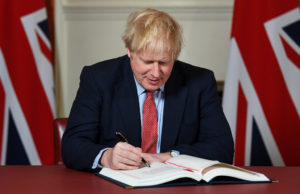
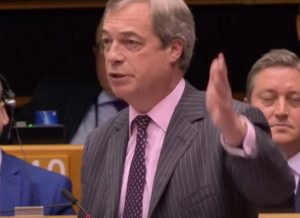
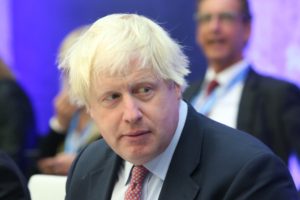
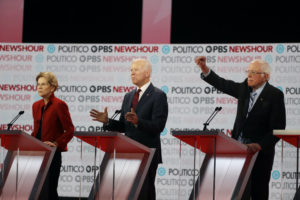
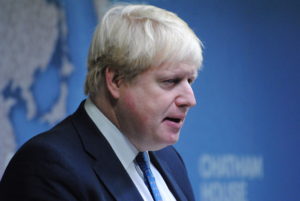
You need to be a supporter to comment.
There are currently no responses to this article.
Be the first to respond.